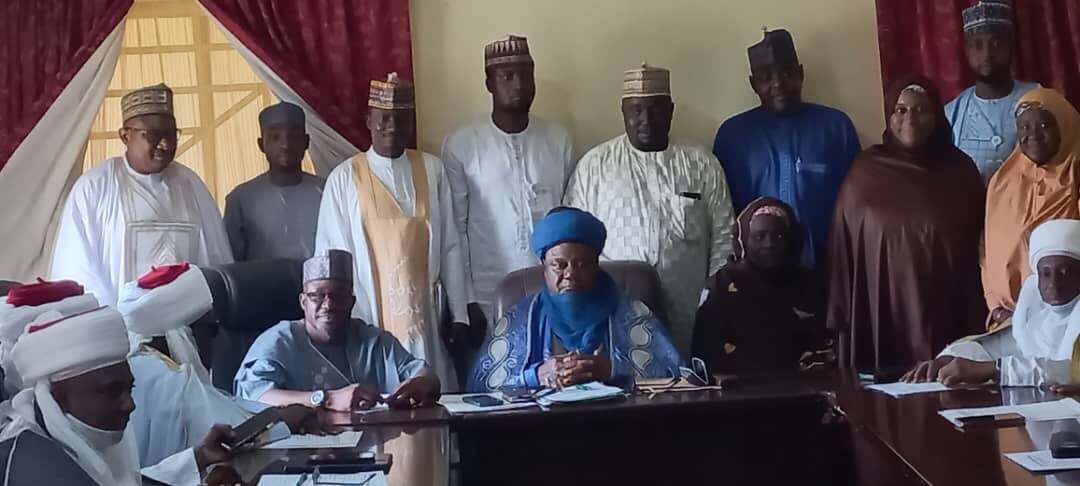The Zamfara State Council of Chiefs, led by His Royal Highness, the Emir of Anka, Alhaji Attahiru Ahmad Muhammad Anka CON, has pledged its unwavering support for an initiative aimed at addressing the rising number of out-of-school children in the state. This assurance was made during a meeting at the Council Chamber in Gusau, where the chiefs welcomed a delegation from the Zamfara State Universal Basic Education Board (ZSUBEB) technical committee.
In a statement by ZSUBEB’s Public Relations Officer, Ibrahim Musa Maizare, it was noted that the Emir of Anka praised the Zamfara State Government’s efforts in tackling the educational crisis, citing the ongoing state of emergency in the sector under Governor Dauda Lawal’s administration. The Emir described the out-of-school children initiative as timely and crucial to the broader educational reforms being implemented across the state.
Highlighting the essential role of traditional rulers in education, the Emir urged the government to reinstate the practice of involving them in critical educational oversight. He advocated for their involvement in the posting and supervision of principals, head teachers, and teachers, stating that such measures would enhance accountability and performance within schools. Additionally, he recommended regular coordination between traditional rulers and local education chairmen to ensure continuous improvement and a streamlined reporting process.
Professor Nasir Garba Anka, Executive Chairman of ZSUBEB, emphasized the significance of building strong partnerships with traditional leaders to address the pressing issue of out-of-school children. He noted that with an estimated 125 million out-of-school children across Nigeria, Zamfara aims to tackle 80% of this crisis through a comprehensive approach involving traditional rulers and other key stakeholders. This effort aligns with Governor Dauda Lawal’s broader rescue mission agenda, which has prioritized education as a critical area of focus.
The program, which enjoys backing from international and local partners, including UNICEF, UNESCO, the World Bank, Save the Children, and other NGOs, was lauded by Professor Anka. He acknowledged the critical support from these organizations, stressing that their involvement would be instrumental in achieving the program’s goals.
Also present at the meeting were key figures such as Hajiya Hauwa Ibrahim Naala, representing the Honorable Commissioner of the Ministry of Education, Science, and Technology, Malam Wadatau Madawaki, Dr. Rabiatu Musa Mafara, UBEC Zonal Coordinator, and the UNICEF Focal Person, as well as other members of the technical team. Their presence underscored the government’s commitment to securing the future of Zamfara’s children through sustained collaboration at both local and international levels.
This concerted effort aims not only to provide immediate educational access but also to lay a foundation for long-term socio-economic development, as education remains a critical tool for lifting communities out of poverty and addressing social inequalities in Zamfara State.
